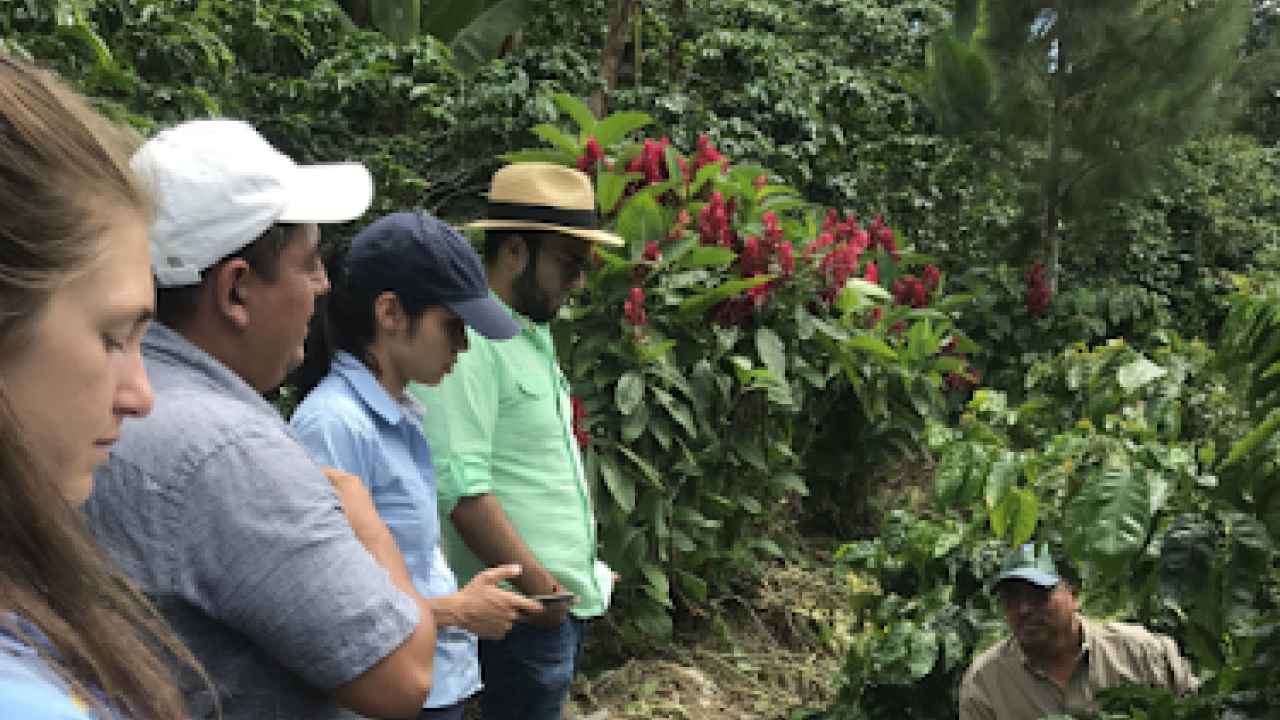
Lisa Antoshak: Reaching Coffee Producers Remotely: How One Research Partnership Continued During the COVID-19 Pandemic
In 2020 Guatemalan coffee producers faced unprecedented challenges: restricted movement in their communities, which limited their ability to obtain household resources and inputs for coffee production and transportation of coffee for export, heavy rains and two hurricanes and – like all of us – the health risks of COVID-19. With this context, what research was possible? What research would be useful? And how could international research continue?
In 2019, the Henry A. Jastro Graduate Research Award helped launch a research partnership with private sector partners in the Guatemalan coffee sector and in 2020, additional funding made it possible for that research to continue remotely, despite the challenges of COVID-19. One of the main research findings from the 2019 research needs assessment was the necessity to improve the delivery of technical assistance programming to small and medium-scale coffee producers in Guatemala. Based on this finding, Caravela Coffee (Caravela) was interested in evaluating the performance and impact of their on-farm technical assistance program in Guatemala, also known as the Grower Education Program (PECA), in partnership with UC Davis. PECA provides extension support to farmers selling or interested in selling specialty coffee to Caravela, at no cost to producers. Given the constraints of international travel, Caravela was able to provide access to archival data collected by PECA and was interested in developing an electronic survey to reach producers to evaluate the program.

To assess the PECA program, research was collected and analyzed in three principle ways. First, two surveys were developed: one to seek input from participating producers on the value and needs of the program and a second one to collect staff perspectives on the efficacy and role of the program. Second, archival data was collected by Caravela coffee to identify performance across key performance indicators and shared with UC Davis for analysis and recommendations regarding monitoring and evaluation of the program. The electronic survey was shared with staff and producers and over the course of six weeks, 20 staff and 29 producers were able to access and complete the survey. Key findings from the survey are as follows:
- In general, participants were very satisfied with the services provided by Caravela. Over 72% of producers who participated in the survey indicated they were very or extremely satisfied with the services provided by PECA and over 89% indicated they would continue working with PECA in the coming year. Furthermore, 96% of respondents indicated they were likely to recommend PECA to other producers. Figure 1 summarizes responses regarding how much producers felt PECA had improved their production.
- In addition to producer’s satisfaction with the program, producers indicated they had trust in the recommendations provided by technicians. Over 85% of respondents reported having a lot and a great deal of trust in the recommendations provided. When asked to compare PECA’s technical assistance services to other providers, 18% percent of respondents indicated it was similar or about the same, 41% indicated it was better and another 41% indicated it was much better. Caravela staff responses rated their performance slightly higher with 75% of respondents indicating their services were much better and 25% rating the services as better than other providers.
- Due to COVID-19, the survey also sought to identify the best means of continuing to support producers remotely. 74% of respondents indicated they would be able to participate in online or remote training opportunities with PECA and the same percentage of respondents also indicated they were very or extremely likely to join online training opportunities. However, Caravela staff estimated this likelihood was much lower. With 25% of staff indicating it was not likely producers would join online training and 75% indicating it was somewhat likely. No staff members indicated they thought it was very or extremely likely – as the majority of producers had indicated. Producers also provided feedback on what platforms they preferred for training and access issues they might encounter. Lastly, we collected what topics producers might be interested in being trained on remotely to inform offerings.
The responses from the survey are the first step in identifying how to refine and improve technical assistance for producers involved with PECA. The research into the archival data is ongoing and will be integrated with the survey responses to inform improved technical assistance provision through Caravela Coffee.
In addition to the findings of the research, I believe some of the most important lessons from this research have been the opportunities provided by remote research collaboration. This exercise of adapting data analysis to a remote project allowed Caravela staff to take a larger role in the development and dissemination of the research, which improved the collaboration and research outputs. It also demonstrated that it is possible to reach rural producers via electronic survey methods, even where data and internet penetration is low. Furthermore, farmers themselves indicated they were more likely to want to engage on electronic platforms than technical assistance providers believed was possible. I hope this experience promotes additional remote research projects that identify partners interested in evaluating existing data or being an integral part in remote data collection.
Funding for this research was possible thanks to the Henry A. Jastro Graduate Research Award and the Patrick H. Brown lab at UC Davis. If you have any questions about the research findings and reports, please contact Lisa Antoshak (ljartuso@ucdavis.edu).